CMN 305
Strategic Public Relations in Professional Communication

1. Course Description
This course examines the principles and application of effective public relations. Students will study the concepts underlying public relations and how to employ them in strategic planning, image management, advocacy, and media interaction. Pedagogy will be case-based and include simulation activities.
Last Revised
RTA 917/BDC 917
Antirequisites
RTA 917/BDC 917
Prerequisites
CMN 100 or CMN 114 or CMN 200 or CMN 279 or CMN 300 or THM 200 or Direct Entry
Delivery
Lecture: 3 hours
2. Course Objectives & Learning Outcomes
- To understand the role of public relations in contemporary professional life
- To analyze and evaluate public relations campaigns and products
- To create and implement public relations campaigns and products
3. Topics Covered
- Thinking about public relations
- The history of public relations
- The role of public relations today
- The ethics of public relations
- Practicing public relations
- Identifying publics
- Targeting messages
- Planning public relations products and campaigns
- Crafting products and implementing campaigns
- Pursuing careers in public relations
4. Teaching Method
Lectures and Seminars
Teaching will be conducted by lectures and seminars. In the seminars students will have the opportunity to deliver presentations, participate in simulated activities and lead discussions about public relations cases and campaigns.
Graded Assignments
Evaluation will be based on a minimum of three term assignments:
- Oral seminar or presentation
- Written assignment
- Public relations campaign proposal OR paper dealing with a public relations issue
5. Course Materials
Topicality and flexibility will be achieved by the use of journal articles, web texts, podcasts, videos, and other materials. Course materials will be available in D2L.
Simulation Software
In selected sections, at the discretion of the instructor, students must purchase an online simulation package.
6. Policy
6.1 University Policies
Students are required to adhere to all applicable university policies found in their Online course shell in D2L and the Course Outline Policies.
6.2 Print and Digital Copying Guidelines:
Toronto Metropolitan University complies with Canada’s Copyright Act which protects both creators/owners and users of copyrighted materials. Students should familiarize themselves with TMU Copyright policies and procedures, and contact the Copyright and Scholarly Engagement Librarian at copyrt@torontomu.ca for questions, concerns and clarification of the copyright rules.
6.3 Turnitin.com
Turnitin.com is a plagiarism prevention and detection service to which Toronto Metropolitan University subscribes. It is a tool that helps instructors determine the similarity between student work and the work of other students who have submitted papers to the site (at any university), Internet sources, and a wide range of books, journals, and other publications. While it does not contain all possible sources, it gives instructors some assurance that students’ work is their own. No decisions are made by the service; it generates an “originality report,” which instructors must evaluate to judge whether something is plagiarized.
Students agree by taking this course that their written work will be subject to submission for textual similarity review to Turnitin.com. All submitted papers will be included as source documents in the Turnitin.com reference database solely for the purpose of comparing the similarity of such papers. Use of the Turnitin.com service is subject to the terms-of-use agreement posted on the Turnitin.com website. Students who do not want their work submitted to this plagiarism detection service must, by the end of the second week of class, consult with their instructor to make alternative arrangements. Even when an instructor has not indicated that a plagiarism detection service will be used, or when a student has opted out of the plagiarism detection service, if the instructor has reason to suspect that an individual piece of work has been plagiarized, the instructor is permitted to submit that work in a non-identifying way to any plagiarism detection service.
6.4 Email Communication
Toronto Metropolitan University requires that any official or formal email communication from students be sent from their official Toronto Metropolitan University electronic accounts.
6.5 Video and Audio Recording
No video or audio recording is permitted in class without the express permission of the instructor.
7. Learning Management System
Toronto Metropolitan University supports Brightspace by D2L as its official Learning Management System. University Policies governing Brightspace have been documented at the Courses @ Toronto Metropolitan University Privacy and Security website.

